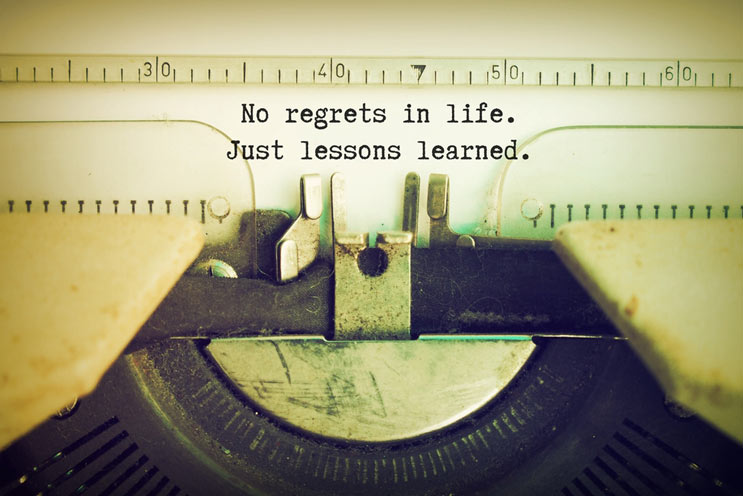
If you ever need a good cry, just turn on the world news. Don’t bother with sappy romantic comedies or emotional dramas. You don’t even need to pay attention to that touching commercial about family/animals/bullying/illness that always makes you cry even though it’s only 30 seconds long. All you really need to do is tune in to current events, because these days the news can be pretty damn depressing. There’s hardship, hate crimes, racism, gender inequality, homelessness, violence, unemployment, refugees in crisis and more. If you’re worried that depressing news can actually lead to, well, depression, here’s the important thing to remember. Unless you are predisposed to experience mental illness, watching the news won’t give you anxiety or cause depression. Because, as Everyday Health reports, it is hard to pinpoint exactly what does cause depression, “the current reasoning is that depression is caused by a combination of genetics and environmental, psychological, and biochemical factors.”
That said, sad, traumatizing or frustrating news that makes you feel angry, scared or anxious certainly can have some effects on your mood and your outlook on life. As NY Magazine states it, according to Mary McNaughton-Cassill, a professor at the University of Texas–San Antonio and leading researcher on the connection between media consumption and stress, “cognitive shortcuts triggered by the news can also lead us to gradually see the world as a darker and darker place, chipping away at certain optimistic tendencies.”
Read Related: How to Talk to Your Kids About Current Events

So how do you keep your smile in tact and put on a brave face, even when faced with such harsh realities on the world news? Well, for starters, you need to try and focus on the good in your life. Sure, the news might showcase a lot of really terrible current events and emotional incidents, but there are also stories of hope, love, sacrifice and joy. For every failure or step back in areas like human rights, gender equality, religious peace and poverty, there are also big wins and some steps forward. In addition, it helps to not focus only on the international news, but also what is happening in your own family circle and immediate reality. Think about your family who loves you, focus on the moments that make you feel happy, proud, safe and satisfied. At the end of the day, the people you care about and the things you are passionate about have to lift your mood, even when the rest of the world seems to be falling apart.

Next up, brooding. Brooding isn’t the answer. Yes, we understand that sometimes you will feel defeated, but there are two main ways to handle that sense of failure. According to Gerald Haeffel, associate professor of clinical psychology at Notre Dame University, “a person who broods will focus on his or her negative mood…[they] will think about how sad they feel, try to understand why [they] feel depressed and worry about the implications of their sadness. In contrast, someone who does not brood will tend to distract themselves when feeling sad (for example, by exercising).” In other words, if you don’t want to let the depressing news make you feel depressed, find an outlet for your sadness and anger. Exercise is a healthy way to clear your mind, distract yourself from reality for a short period of time, sweat out your stress, and refocus. Brooding, while a very natural reaction to bad news, will only accentuate your feelings of sadness and loss.

Remember, it’s OK to be sad, but don’t allow yourself to feel hopeless. When topics and stories on the news seem bad, it’s not just a wake-up call to the harsh realities of the world, but also a chance to make the world better. Use your knowledge as an opportunity to improve the future, not an excuse to focus on the failures of the past. Take action, get involved, learn more, talk about your feelings, find out how you can help, and take control.
And if all else fails, just turn it off. If the news is too much for you to handle and still be able to function and live your life in a happy, fulfilling, productive way, shut it off (even temporarily) and focus on happier things. Be conscious of how you process the news and how you react to negative press; the better you understand how your mind and your emotions work, the better you’ll be able to control and manage your reactions in a constructive way.











